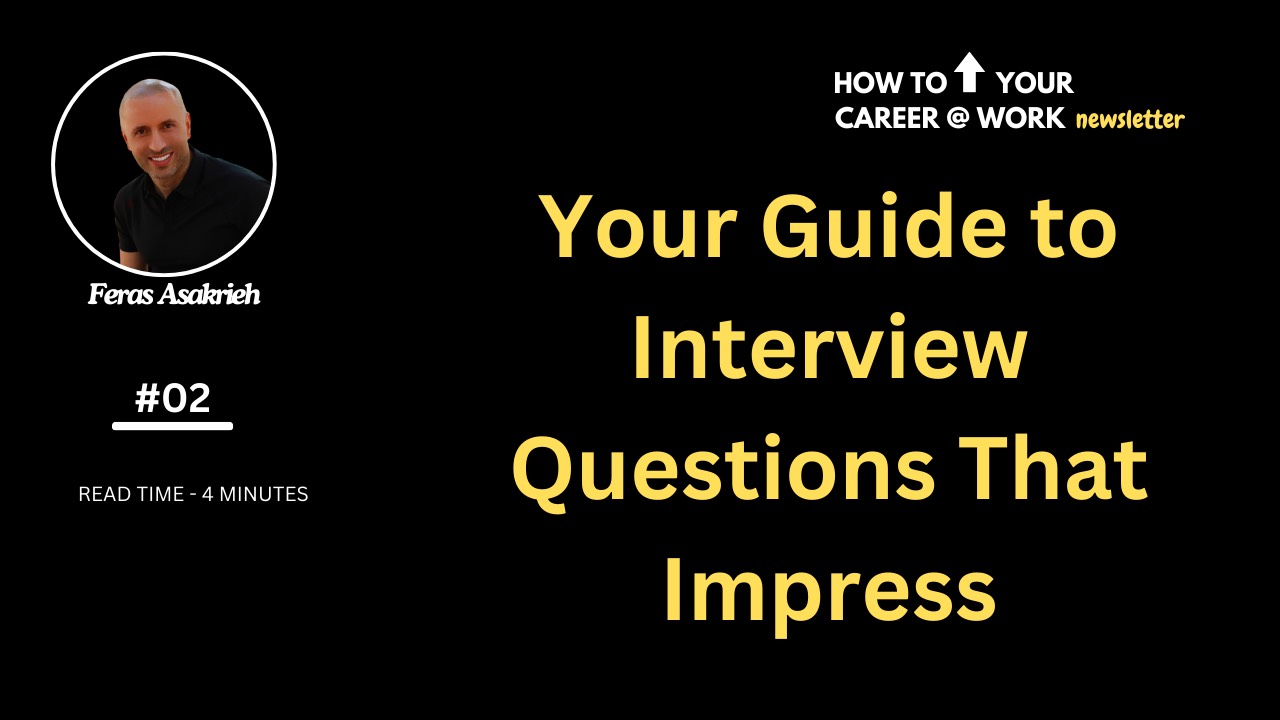
Your Guide to Interview Questions That Impress
READ TIME - 4 MINUTES
Ever wondered why some candidates always seem to stand out in interviews? It might just be the questions they ask.
In this newsletter, I dive deep into a crucial aspect of job interviews often overlooked by candidates: the questions youask. The right questions can set you apart, demonstrating your insight, engagement, and genuine interest in the role and company. Conversely, the wrong questions—or not asking any—could cost you the job.
Why Asking the Right Questions Matters
Asking thoughtful questions in an interview does more than show you've done your homework. It reveals your critical thinking, priorities, and how you envision yourself within the organization. It's your chance to flip the script and interview the interviewer, providing a two-way exchange that can significantly influence the outcome.
But what stops us from asking those game-changing questions?
The primary reason: Lack of Preparation
But here are a few more reasons I've discovered from coaching and mentoring people:
- Fear of asking "dumb" questions
- Worrying about taking up too much time
- Uncertainty about what's appropriate to ask
- Feeling too nervous to engage in dialogue
- Believing it's solely the interviewer's job to lead the conversation
I am going to guide you through selecting, crafting, and timing your questions to leave a lasting, positive impression.
Here's the roadmap.
Step 1: Selecting Your Questions
Focus on what genuinely interests you about the role, team, culture, and the company's future. Avoid questions with answers that are easily found on the company's website. Instead, aim for depth:
- Ask about specific challenges the team faces.
- Inquire about how success is measured for this role.
- Question how the company's values are lived out day-to-day.
How does phrasing shape the conversation? The answer might surprise you.
Step 2: Crafting Your Questions
It's not just what you ask but how you ask it. Phrase your questions to encourage detailed responses rather than simple yes/no answers. Frame your inquiries in a way that shows you've already envisioned yourself in the role:
- "Can you describe a typical day for someone in this position?"
- "How does this role contribute to the company's goals and objectives?"
Why does the number of questions you ask matter, and how can you make each one count? Let’s uncover the secret.
Step 3: Knowing How Many Questions to Ask
Quality over quantity. Three to five well-considered questions can be more impactful than a long list. Time your questions throughout the interview when they feel natural, but save a couple for the end when you're typically asked if you have any questions. Watch the interviewer's body language if you feel you've asked too many questions. Emotional intelligence and reading the room are extremely important.
In closing, the art of asking insightful questions is a powerful tool in your interview arsenal. It demonstrates your interest, analytical skills, and suitability for the role. With a bit of preparation and practice, you can turn this segment of the interview into one of your strongest assets.
Remember: Every question is an opportunity to further solidify your candidacy. Use them wisely.